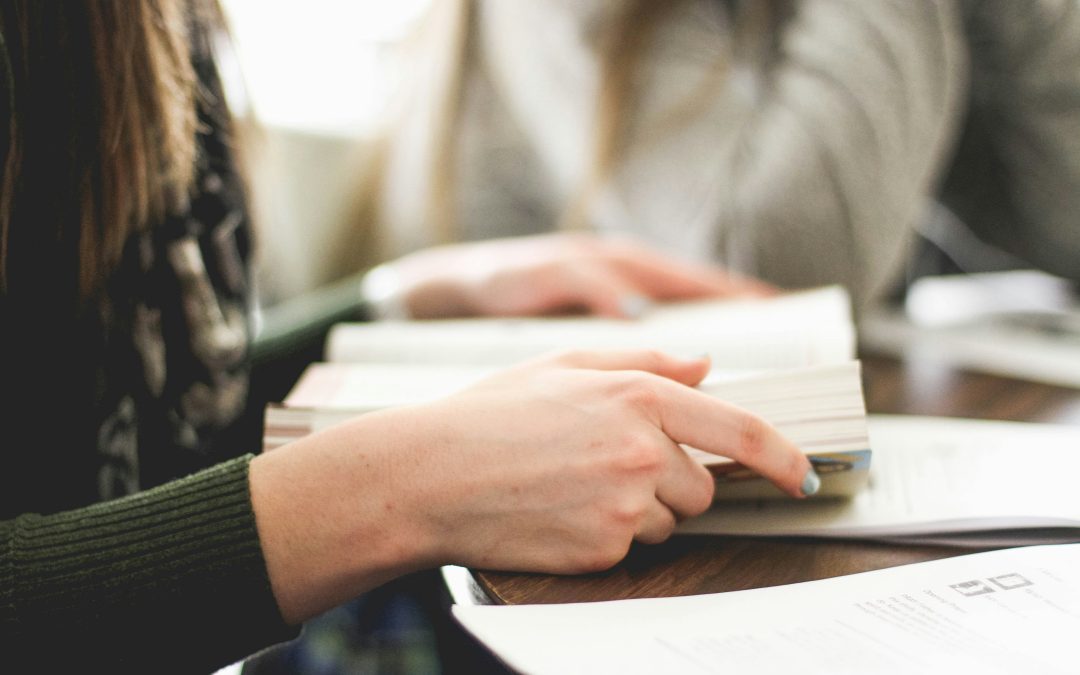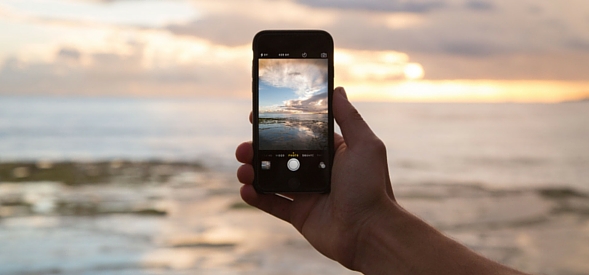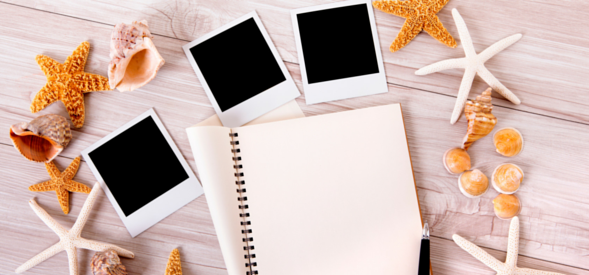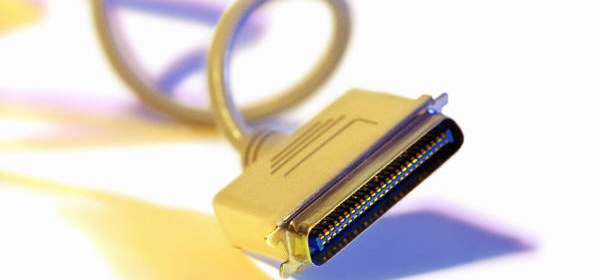
by Jenna | Oct 3, 2025 | Reflections
Back a bunch of years ago, I sat through a visualization connecting with my writing self in the future, and asking for her guidance. The message that came through very strongly was, "write like your life depends on it."
It was strong, resonant, and clear.
I thought I knew what it meant: "Write like there's nothing else to live for. Write like a maniac. Push, push, push. Write as much as you can and as fast as you can. Write to the exclusion of all else, no matter what."
I've felt pretty guilty that I haven't been doing that.
Instead, since then, I got married (and planned the wedding, essentially a part time job), had two amazing kids, moved three times, navigated home purchases (more part time jobs), and figured out new school systems. I've had many writing clients and run a year-round online writer's community for 14 years, developed my editing skills, and more.
I've also written multiple screenplays, hundreds of articles and blog posts (though, ha, I've killed some of them along the way), drafted two works of non-fiction (they're on the chopping block, but who knows), written some short scripts and short stories, started adaptations of two scripts, and more.
But I had still not — to my mind — lived up to "write like your life depends on it."
The other night, though, it occurred to me that perhaps I was interpreting the message incorrectly, through the lens of hustle culture, particularly here in the U.S. and the SF Bay Area.
What if, I thought, ...what if this message is actually about my entire well-being?
What if my "life depends on it" means I rely on writing to know myself.
To feel whole.
To feel expressed.
It doesn't have mean hustle, strive, push. Not at all.
It might just mean: Write because you love it.
Write because it makes you happy.
Write because it's essential to your vitality and well-being.
What a relief.
That's where the joy and love is, not the hustle-strive culture.
I can save that for the marketing part, if even there.
(Wouldn't it fun to approach marketing with joy and love too?)
Perfectly, the morning after my epiphany, I listened to Lauren Sapala describe the difference between "achievement-oriented practices" and "relationship-oriented practices."
She pointed out how achievement practices focus on striving, goals, measurement, etc., whereas relationship practices focus on the richness and depth of the relationship we have with our writing and with our characters.
In other words, a relationship-based practice comes from love.
She also pointed out how the tools of achievement practices can still be useful (goal settings, measurement, counts, tracking, etc.), but — especially for those of us who are HSPs, INF types, empaths, etc. — we don't want them to take over.
Instead, we want to create from feeling, intuition, inner guidance, relationship, intimacy, wonder, play, joy, and love.
Spot on.
And all the more valuable to me because it reinforced my own insight from the night before (gotta love a little synchronicity).
While I wish I had seen this sooner, I'm so happy to have found it now.
Write from love.

by Jenna | Sep 12, 2025 | Reflections
I can't totally recall how and when I lost my reading groove.
Seems like it happened gradually.
In my 20s, between the assigned reading in grad school and the dangers to my student loans of the lovely Pegasus Books near my apartment building, reading regularly (and reading fiction) fell by the wayside. Then came a ridiculously busy early career, followed not too long thereafter by parenthood and the accompanying sleep deprivation, none of which helped my reading life.
Then came that wave of short-attention-span-fostering social media and many notifications from various software and devices that began in the 'oughts. Later the 2016 election. And the rise of binge-watching.
It's not that I haven't been reading, it's that I haven't been reading consistently. Certainly not the way I did when I was a kid (I pretty much just devoured books). My adult reading life has been characterized by random, distracted, intermittent reading, mostly while on vacation.
Despite this, I've managed to keep up with Blake Crouch* and Matt Haig and other favorite authors.
(Coincidentally, I may have scared myself into believing I cursed us all by reading three pandemic books in late 2019 and early 2020 — Wanderers, the Oryx & Crake / Maddadam series, and A Beginning at the End — right before COVID kicked off. Either that or my intuition was operating in high gear with a prescient warning...)
Bottom line, I haven't been reading the way I want to be reading (and which I believe is important to do as a writer).
In any case, this summer I regrouped. Finally.
And it was sort of a strange recipe for getting there.
Here's what happened:
- We were (mostly) unplugged for 22 days. My immediate family and I were in the High Sierra working on fixing sinking piers under our extended-family's cabin, built in the 1920s. Though we could drive down a pothole-riddled road to the one restaurant with WiFi, it was a bumpy, stressful trip, and thus not appealing. So, unplugged, mostly.
- I needed for-real stress relief from the cabin work. (I wasn't the one under the cabin doing the work, but I was sort of our extended family's representative, project manager, chef, kid-minder, and pioneer-style laundress so I needed to chill the fuck out somehow. Plus we were living in a construction zone. So yeah, stressful.)
- We've always read a lot at the cabin. The bliss of lying outside on the porch beds, reading books, is a built-in, default for me. So I was primed to read. Plus I had my dad's fully loaded kindle with me, and some print and library books that unintentionally made the journey with us, oops.
- Once I started reading, I didn't stop. When I finished a book, I started the next one, quickly. I read the three print books (Lost & Found, A War of Gifts, and Staircase in the Woods) first, and nearly faltered, but opened the kindle and dove in.
- I shifted into full-on binge-reading. Thanks to my dad, I had a massive collection of detective stories at my immediate disposal. That's when the true binge-reading commenced. I started with Michael Connelly's Bosch series (and haven't stopped). It turned out to be a hugely handy way to retrain my social-media-shortened attention span. (It also helped that my kids were reading oodles of books too.)
- I'm determined not to let myself stop reading. Since we've been back from our trip, my pace has slowed from one book every two days to one book every four to seven days, but I'm happy with that. My intent is to always have a book I'm reading, and to know what the next book is going to be.
- Turns out reading a massive series is not unlike binge-watching a long show with multiple seasons. So having the Bosch books to binge-read kind of fit my earlier binge-watching pattern, but is much better for my brain (other than all the murder stuff). I had another hiccup when I finished the main Bosch series and I had to wait for library copies of the Ballard/Bosch books to be available, but entertained myself with the fantastic Siege of Burning Grass in the meantime.
In any case, all this to say, I've gotten my reading groove back and I could not be happier.
I've read 32, going on 33 (::checks log:: no, make that) 35 books since June 6, when we left on our work trip (also, note to future self, a work trip is NOT a vacation). Considering that I think I read THREE books this year prior to that? Pretty epic. I know for sure I read All Systems Red, Upgrade, and The Life Impossible.
I want to stick with this pace and hope to have recorded double this number by the end of the year. While I didn't exactly mean to ensconce myself into the detective world, I'm also having fun reading "with" my dad, knowing he would have enjoyed sharing the experience with me (he passed away in 2018).
The best part of all this: my brain feels far less scattered and less hooked by social media and news.
It's a highly welcome and much-needed escape, in times like these. And, it's helped me stretch out my ability to focus on writing for longer stretches, which I dearly love.
If you're in a similarly distracted place, join me. Even if you can't unplug, binge-reading a long, addictive series is a terrific way to break the cycle and come home to your reader-self.
How's reading going for you right now? I'd love to read your thoughts in the comments. 👇
If you're looking for support making writing happen day in and day out — including regular writing sprints — check out my Called to Write Community, now available at a new lower rate: https://calledtowrite.mn.co
If you're looking for developmental editing support, I have space coming up in my editorial calendar for manuscript critiques and script notes in October. https://jennaavery.com/for-writers
* All book links herein are affiliate links for Bookshop, which means I earn a small referral fee
if you purchase from them, and which helps me keep my writing ship afloat. Thank you!

by Jenna | Nov 25, 2015 | Reflections, Science Fiction
I wrote recently getting a handle on online distractions that keep you from writing, and prior to that, about cutting back on the online distractions that were cluttering my head.
I've been highly interested in this topic because I could feel my life-energy being sapped by these distractions and it's been really bothering me, despite the many changes I've already made. I do a good job of protecting my actual writing time from email and other online stuff, but the rest of my life? Not so much.
And it was mostly because of my phone. My computer use feels manageable. My TV consumption is minimal (though I have been watching lots of Prison Break and Breakout Kings as I'm prepping a sci-fi prison movie right now!). Having said that, I like being able to use my phone to read ebooks in the dark late at night without waking the baby (who sleeps in the same room) and being able to write on it when I want to.
But I don't like feeling like I can't be without it. Ever. YUCK.
(And honestly, the picture I've chosen to accompany this post keeps freaking me out -- it seems entirely emblematic of how so many of us are viewing our world through the filter of a device... constantly.)
My email trap
It was email that was really my last "hook" — I rationalized that as a business owner, I need to stay on top of things and make sure nothing was falling through the cracks. But that notion kept me constantly checking to see if I had any new messages.
And not only did I feel guilty for oh so frequently "checking" my phone when I was around my kids, I didn't like the way my brain felt always cluttered by all the checking, even after I'd taken Facebook off my phone, turned off almost all the notifications in the lock screen and more. It was like being tied into other people's energy and needs was keeping me on edge, in a hyper vigilant state of awareness and constant readiness. Again, YUCK.
Finding the courage and support to make a change
So I decided to participate in a "Look Up" two week online use "detox" program and see what shifts I could make.
We worked through a four-step process of first defining what we want, noticing what impulses were driving the behavior to check in online, accepting that those feelings and impulses (often discomfort) would not necessarily change but that we could learn new ways to deal with them, and finally choosing what we wanted instead. Then, every day, we answered simple journal prompts every morning to set our intentions for the day about our online use and how we wanted our days to go, and every evening, about how it went and what we learned.
I deleted Gmail from my phone
Initially I found myself sort of skirting the edges of changing my phone use, testing the water, seeing how it felt just to consider cutting back. (Which just shows how powerful an addiction it can be!)
Even before the program started, I installed the app called "Moment" so I could see how much time I was actually spending on my phone, and how many times I was picking it up. So in some ways it was good that I wasn't changing anything initially, but just observing. And it was kind of scary. There was one day, prior to the program, where I picked up my phone FORTY-NINE times. 49!! It's embarrassing even to put that in print.
On about Day 3 of the 14-day program I decided to take Gmail off my phone entirely. For good measure, I took off Chrome too, so my second-biggest, "let me just look that up real quick" excuse was gone too. I still have Safari there but since it wasn't my go-to program it just doesn't have the same attraction. While I was at it, I turned off every other kind of lock screen, pop up, and banner notification I could find on my phone (except iMessage and Reminders, which I do use) and on my computer.
It was so worth it.
I felt sort of jittery for about 24 to 48 hours, still on that automatic "must-check-now" auto-alert. It was mildly frightening to feel so much like Pavlov's Dog. Again, YUCK.
What changed for me
After that, everything got a lot more calm.
I found myself feeling much more present in my life and to my family.
My brain felt quieter, calmer, more alert.
I had more energy.
I started reading REAL BOOKS and putting my hands on REAL THINGS like baking food, drawing, collaging. I noticed that when I felt the urge to "check" I could make tea, or snuggle with my boys, or GO OUTSIDE and look up at the beautiful amazing sky that helps make life on this planet possible.
I also found that I could still use my devices for certain things: Kindle, Netflix, the timer, the calculator, iMessages, writing, and other apps I love and find incredibly useful without it taking over my time and energy. My phone became a tool again, instead of a constant companion or savior or whatever it was actually doing for me. It's been interesting to walk the line of finding what online use works for me and what doesn't, at least for right now.
I found myself being crystal clear about times when I absolutely did NOT want to be consuming any online stuff at all and have had a few spans of totally unplugged time (something I used to do weekly) and LOVED it.
It's started to feel kind of gross to be looking at my phone.
So I just don't do it much anymore. It mostly stays in my office, on the charger, except when I need it when I'm out and want it for emergency phone calls, or if I need it for another purpose, like the calculator or timer. Again, it's gone back to being a tool, and I like that.
I also found that the days have gotten So Much Longer! All those "little" checks and moments of time that were getting sucked into online use are suddenly mine again. My mind is clearer. My intentions are clearer each day. I feel more focused.
How my writing has changed
And as far as my writing goes, I have not noticed a huge change in my writing time, but I'm not surprised by that, since I've already been writing regularly and protecting my writing time well.
What I have noticed is that I feel readier to write when I sit down to do it. Now what swirls around in my brain when I'm out in the world is what I'm going to be writing about next, whether it's a blog post, my current script, or the next big project that's coming down the pipeline. It might sound like a small shift, but it's huge. It feels like I've reclaimed my own territory again. And it's such a relief.

by Jenna | Jul 30, 2015 | Reflections
I got to thinking today, after hearing about a writing grant opportunity recently, that it would be amazing to one day be able to fund and operate a writer's grant program. Maybe even a residential one.
And instantly I started contemplating what I would want to see come in from prospective candidates with their applications.
Here's what's crossed my mind so far, in addition to the usual "proof of need" one might expect:
- A specific writing project and a description of its current status, i.e. concept development, rough draft, in rewrites, etc.
- A plan and timeline for completing it.
- A pitch for the concept that gives a sense of its marketability, audience, and reach.
- An outline of the writer's plan for marketing the project.
- Possibly also a slate of ideas for future writing projects.
- An amazing writing sample demonstrating the writer's potential.
- A personal introduction that gave a strong sense of who they are as a person, in terms of their spirit, drive, passion, and personality.
I imagine this might be something similar to what a publisher would want, though that's an area I haven't explored yet. Some of these things might be of interest to a screenwriter's manager as well.
What would be on your list?
I'm curious, if YOU had the money to give, what would be on your list of what you'd want to see from prospective candidate for a writing grant? Or if you were advising me on how to make sure I would attract and select writers best suited for making the most of a writing grant, what would you suggest?
Don't get me wrong, I'm not accepting applications yet nor will I be in a position to do something like that for the foreseeable future but I'm interested... :)
Can we use this now?
... Because:
What if we had those things right now for our current writing projects?
Would they help move us forward with a clearer sense of purpose, drive, and momentum? Or not?
What would it be like if we did?

by Jenna | Mar 27, 2013 | Reflections
Last weekend I experimented with something lovely: Unplugging.
It was precipitated by a comment from one of my Called to Write community members about wanting to feel truly relaxed.
I was reminded instantly of the deep relaxation I experience once a year when I'm up in the high Sierra mountains, truly unplugged. There's no electricity, no telephone, no wifi, no cell service, nothing. If we do want to get in touch with the outside world, we either have to walk 15 minutes up The Road (there's only one) to the campground to the public pay phone or drive 3.5 miles down The Road to the "City" (a rustic store that mostly sells pie and marshmallows to campers, along with a pay-per-day wifi connection).
On the plus side, making the connection hard to get to makes it a much more conscious choice. And when I'm in that world, and connected to nature and the basics of living, I am so much more relaxed than when I am at home in the thick of "so many things to do."
I thought, why not see if I can make that feeling of true, deep relaxation happen for myself more than just once a year?
The connection for sensitives
This is highly relevant for sensitive, introverted, writers, and creatives, particularly because we tend to have such rich, complex inner lives and focus so much of our attention inwardly already. Although the technological connections we can make can feel external (because we are often connecting with others online, for instance), to me it feels like it takes us deeper inside our own heads.
And too much time inside my own head doesn't really feel like a good thing. (A little like eating too much chocolate cake -- there is a just right amount, but too much feels awful.)
Let's face it, the constant accessibility of online activities -- even or especially in the guise of "down time" -- is highly overstimulating. Although we may be connecting with others, which can be considered more "extroverted," or relaxing by playing around on Twitter, Facebook, or digital games, we're actually taking in stimuli and information.
That information can become so overloading, it's no wonder we feel distracted, busy, and overwhelmed. Couple that with the common sensitive's tendency to be afraid that we'll miss something, and you've got a recipe for constant overstimulation doing what might otherwise look like quietly being at home.
This is true for anything we're engaged with that involves going deep into our own minds and not interacting in the day-to-day Real world. Even reading to excess, though I hate to say it. Again, too much of a good thing is still too much.
The invitation
So when my Called to Write member raised this point, I thought, "Okay, it's time to try a 'technology shabbat'."
This is something I've been hearing about for a while from Tiffany Shlain since I first got interested in her and her work Connected: The Film, about being interconnected in this new technological era. Like me, Shlain sees the possibilities in the amazing ways we are connected now. And she also sees the overwhelm factor associated with it.
She recently sent an email invitation to her mailing list, saying, "Will you try unplugging with me?"
My answer: Yes.
What's a technology shabbat?
In her own home, Shlain's family practices a regular weekly "technology shabbat," from sundown on Friday to sundown on Saturday, where they turn off their electronic devices and focus on their time together.
In her recent article on the subject, she notes "Researchers at the National Institute on Drug Abuse have compared the sense of technological dependency — the feeling that we must be accessible and responsive at any time and in any place — to that of drugs and alcohol."
Case in point: It's fascinating to me that apparently people are losing interest in visiting the mountain enclave we go to every year precisely BECAUSE it's so hard to access phones, messages, and online accounts. But when put in the context of addiction it makes much more sense. We've become so accustomed to everything being at the tips of our fingers that we've become afraid to be without it. And to me it DOES feel like an addiction -- something that's hard to put down once I get involved in it.
So I decided to try a tech shabbat for myself.
And it was amazing.
Instead of being drawn to my phone or computer off and on all day to check email, or sucked into playing games with my son our iPad, we cleaned the house in a focused way. My son conducted experiments with glitter, water, and his sand box. I made banana bread for a family who lost a loved one recently, and I went to visit my dad who hasn't been feeling well.
In some ways, it wasn't anything particularly unusual or different than I might have normally done. In fact, the specific things we did we might well have done anyway.
But we did them without interruption.
I didn't feel like I was missing anything. Much. :)
I felt calmer. I felt present. I felt happier.
The real test came when it was over and time to check in again. Had disaster struck? Had anything gone awry? Would there be 18,000 emails from angry customers or desperate assistants?
Nope.
All was well.
And it felt great.
What's been interesting to notice since then is 1) how I have gone back to being highly involved in the technology again, but while 2) feeling somewhat resentful of the intrusion of it. I was reminded that when I first started my business I used to methodically shut down my computer every Friday night and not reboot it until Monday morning. And that was back before I had a cell phone or any of the myriad of ways to stay plugged in. (Does this remind anyone else of The Matrix?)
I also feel myself turning over in my mind some new rules about how I want to regularly engage with technology or not. What time and where, those kinds of things.
But mostly, it's been an incredible reminder of a simple way to create what feels like a vacation day to me, without even leaving town. What a treat!
Warmly,

by Jenna | Sep 5, 2012 | Reflections
When times get rough and things go wrong, sometimes I wonder if I’ve misread my intuition or why I wasn’t “warned.”
I don’t have an answer for the warnings, exactly. When my friend was in a bad motorcycle accident years ago, I had a strong sense of anxiety all day before I found out what happened. When I was in a car accident a few years ago, though, I had no hints there was anything wrong that day.
And was there anything wrong? It’s hard for me to answer that too. Does being intuitive mean we are always “saved” from challenging and painful experiences? When I think about it from a soul perspective, I have to say: I doubt it. My personal belief system tells me that we “sign up” for life experiences that as spiritual beings in human form we want to judge as right or wrong, good or bad. Perhaps from a soul perspective, these experiences are purely neutral, and designed for growth.
I’m reminded of Sandra Ingerman’s Shamanic Journeying book, where she asked her higher self in fear, “But what if I end up homeless?” Her higher self’s response? “Wouldn’t that be interesting?”
And perhaps we just don’t always get to know.
Is there such a thing as “right” or “wrong”?
And, what if there is no right or wrong? What if life just is, and our intuition is our guide to a more joyful experience of life — but one that isn’t necessarily always easier? Is life truly a school ground designed for us to learn and grow, whether it’s hard or easy or fun?
It’s impossible to know.
We have experience
We do, however, have experience.
We have the experience of suddenly knowing something, without knowing why we know it.
We see flashes of images or hear sudden phrases, like the day I was driving by the hospital while I was pregnant and thought, “That’s where my son will be born” — EVEN THOUGH I was planning a home birth.
Do we listen?
Which brings me to my point:
When I had that thought, I very quickly thought, “No, that can’t be right. I’m not having my baby there.” And I didn’t stop to explore that intuitive (and ultimately correct) insight to understand it. Similarly, when my friend was in the motorcycle accident, I didn’t take the time to tune in to my anxiety and understand it. It was only after the fact that I understood it.
My truest experience of intuition is that it’s a very quiet knowing thought or glimmer of an idea — a whisper — and easy to overlook if I don’t discipline myself to pay attention. I like to think I’m getting better at this, but I’m continually reminded that there are more opportunities to listen.






